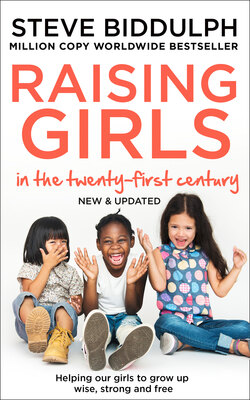Читать книгу Raising Girls in the 21st Century - Steve Biddulph - Страница 36
THE HORMONES OF LOVE
ОглавлениеMany of us today feel unprepared for parenthood. A hundred years ago, most families had seven or eight children and their homes were noisy and crowded places, but often very happy ones. Everyone grew up with babies and toddlers around them and knew how to handle them. Today it’s very different. One study found that one-third of new parents have never held a baby before they get their own!
Luckily our hormones help with this inexperience. New mothers’ bodies flood with a hormone called prolactin. If you are lucky and can breastfeed your baby, then prolactin goes much higher in your bloodstream and makes you feel dreamy and slowed down. It helps you to focus and be there for your child. Other hormones help too; when you hug your baby, or your partner or a friend hugs you, the hormone oxytocin (the love hormone) makes you feel contented and settled.
Oxytocin is a remarkable hormone; it is released when we have an orgasm, it is released when we greet a friend, and when we eat food with someone, sitting together at a table, it increases in our bloodstream. At birth, if it’s a relaxed environment and we feel safe, it floods into us. You need all the oxytocin you can get! When people talk about bonding, it’s oxytocin at work. People who did not get enough love, and therefore enough oxytocin, often can be found seeking that satisfaction in other ways – through fame, doing drugs, compulsive sex, shopping, stuffing our face with unhealthy food. Or writing books!
Gabor Mate, famous for his work with drug addicts on Vancouver’s East Side, says that heroin, and the rush of wellbeing as the injected drug surges into your bloodstream, is a substitute, a mimic, of being loved – but with a much different result.
It’s all an attempt to get that oxytocin we didn’t get in our mother’s arms. So giving your baby lots of affection is a great liberator. It makes her strong and independent, and a people person who will love and be loved for the whole of her life.
